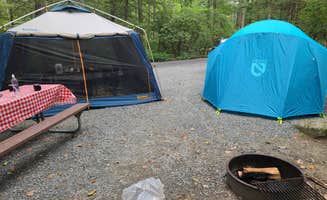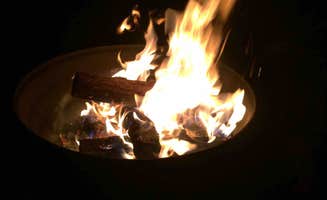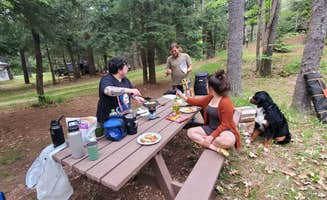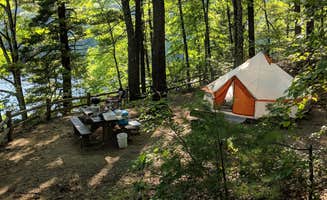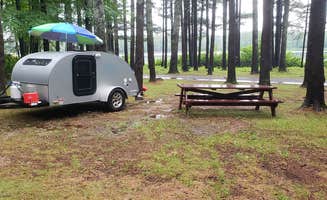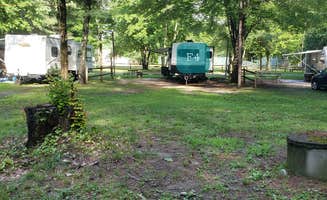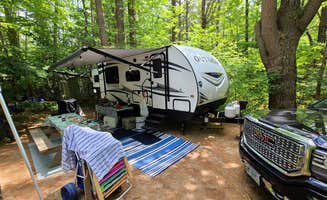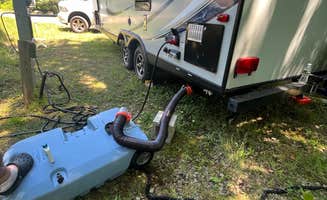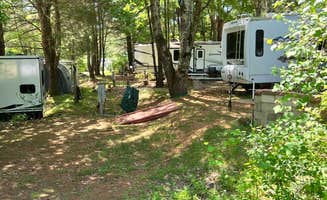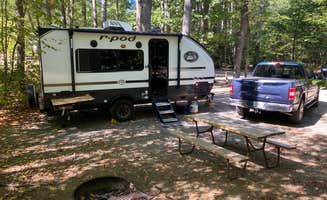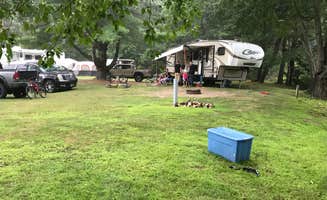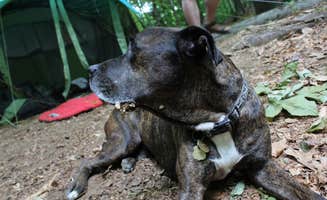Campsites near Orange, Massachusetts feature diverse woodland settings with elevations ranging from 600-1,000 feet across the region. The area's mixed hardwood forests create natural buffers between most sites, though privacy levels vary significantly by campground. Summer temperatures typically reach the mid-80s during day, dropping to the 50s overnight, with frequent afternoon thunderstorms during July and August.
What to do
Paddle sports exploration: The calm waters at Tully Lake Recreation Area provide excellent kayaking and canoeing opportunities. "We take our canoe and spend the whole day at the lake. You can find lots of private areas to swim, pick blueberries and relax," writes Ben P. The campground offers rentals for those without their own equipment.
Hiking trail networks: Multiple interconnected trails surround camping areas near Orange. At Lake Dennison Recreation Area Campground, "Great hiking right from the campsites" according to Alan, who visited in 2021. Many trails connect different recreation areas, allowing hikers to explore between campgrounds.
Swimming options: Most campgrounds feature swimming areas with varying amenities. The beach at Lake Dennison receives regular maintenance with a camper noting it's "nice and soft(ish)" and "the lake is clean." Several campgrounds offer both designated swimming beaches and informal water access from waterfront sites.
Local exploration: The region provides easy access to small New England towns. "If you want a treat after your hike, head into Jaffrey for homemade ice cream at Kimball Farm," suggests one reviewer of the Monadnock area. Many campgrounds are within 15-20 minutes of towns with grocery stores, restaurants and basic supplies.
What campers like
Site privacy levels: Campers consistently mention site spacing as important. At Ashuelot River Campground, "Huge sites and a very helpful owner. What more could you want?" writes Wayne B. Site selection is critical as privacy varies widely even within single campgrounds.
Water-based recreation: Access to swimming and boating ranks high among camper preferences. "If you have a boat, you can rent a dock slip too," mentions Anne M. about Pine Acres. Multiple campers mention fishing opportunities, with many campgrounds allowing fishing directly from shoreline sites.
Cleanliness of facilities: Well-maintained bathrooms and showers appear in numerous positive reviews. "The bathrooms are immaculate. The showers take coins but the facilities are some of the best I've seen while camping on State Park grounds," notes Jess G. about her stay at Monadnock State Park.
Quiet atmosphere: Many campers value the peaceful settings. "One of the quietest and most peaceful campgrounds I've ever stayed at," writes a camper about Gilson Pond Campground. Sites farther from main roads typically offer the most serene experience, as highway noise affects some campgrounds.
What you should know
Cell service limitations: Connectivity varies dramatically between campgrounds. At Erving State Forest Campground, "There is zero cell service... which is fine, but wished we knew ahead of time." Verizon generally provides better coverage than other carriers in the region.
Reservation requirements: Many campgrounds fill completely during summer weekends. "The sites fill up weeks out (and can completely fill the day registration opens...)," notes Kris M. about Tully Lake. State parks typically open reservations 6 months in advance for the peak season.
Bug activity: Mosquitoes and other insects can be problematic, particularly at waterfront sites. "Buggy in June so bring your repellent," advises Sa R. about Tully Lake. Several campers mention insects as their primary complaint during summer months.
Bridge and road restrictions: Some campgrounds have access limitations. For Ashuelot River Campground, "Don't come in off of rt 10, there's a low covered, one lane bridge that you can't tow thru." Always check campground websites for specific directions and warnings.
Tips for camping with families
Playgrounds and recreation: Many campgrounds offer dedicated play areas. At Monadnock State Park, "There is a large playground for kids <12 and a wide open day use area for picnicking. It would be a great place to run around and play games." Multiple campgrounds feature volleyball courts and horseshoe pits.
Site selection for children: Choose sites based on proximity to facilities and activities. "Sites are wooded and shady and not RIGHT on top of each other, but pretty close together," notes Kris M. about Otter River State Forest. Families often prefer sites closer to bathrooms and play areas.
Swimming options: Beach areas with gradual entries work best for young swimmers. "The lake is perfect for swimming, kayaking, and fishing," mentions Emily H. about Lake Dennison. Some campgrounds have designated swimming areas with roped boundaries for safety.
Noise considerations: Campground atmospheres vary widely from quiet to activity-filled. "This campground is clean and well-maintained but the sites are quite small and close together. There were a ton of kids and it was pretty noisy until about 11pm and then starting again around 7am," notes Taylor R. about one location.
Tips from RVers
Site dimensions and access: Many campgrounds have limitations for larger rigs. At Fort Dummer State Park Campground, "The sites were generally wooded, pretty level, and fairly spread apart from one another." Always verify site length and width when booking, as many campgrounds in the region were designed before larger RVs became common.
Hookup availability: Electric and water connections vary widely between campgrounds. "Sites in the woods have water and 50 amp service, no sewer. Most of the open sites have 30/50 amp service with full hook-ups," explains John C. about Ashuelot River Campground. State parks typically offer fewer hookup options than private campgrounds.
Dump station access: Not all campgrounds with RV sites provide dump stations. "Dump station and additional swimming/water activities are a little farther down the road at Lake Dennison," notes Jean C. about the Otter River area. Some campgrounds require driving to neighboring facilities for tank emptying.
Maneuverability challenges: Roads and turns within older campgrounds can be difficult for larger rigs. "Pretty tight to maneuver bigger rigs. Sites are small-ish, but they work," mentions Steve K. Advance research on access roads and campground layouts helps prevent difficult situations.


